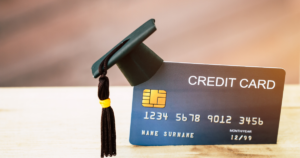Putting yourself in a good financial position is a crucial part of proper money management. A large portion of this process is to know how to manage your checking account. So, how much should you have in your checking account?
How Much Should You Have in Your Checking Account?
Be aware of your Minimum Balance Requirement
Being aware of your minimum balance requirement on your checking account can help you avoid unnecessary fees and banking charges. Your minimum can be anywere from $5 to $500. Maintaining this balance can help you avoid account closures.
Stay Away from Overdrafts
An overdraft happens when you make a debit from your account over the balance. Most banks may charge a fee for overdrafting. Our credit counseling advice is to maintain a cushion in your checking account as a solution for this problem. Also being on top of your spending and budget can help you determine your ability to make a certain purchase.
Be Cautious About Those Automated Payments
In maintaining a healthy financial life and working to effectively pay off debts Many people set up automatic monthly payments for utility bills, such as rent, cable, and electric. Some of these bills fluctuate, though. For example, your electricity or gas usage might be higher in the winter, and you don’t always know much the bill will be. Having a buffer in your checking account helps ensure you always have enough to cover bills, even if they increase from time to time. Review previous monthly statements and calculate an average. Overestimate to ensure you always have enough and won’t be charged for an overdraft.
You’ll also want to keep track of when your bills are paid out of your checking account. Knowing which dates the money is withdrawn will help you plan to have enough to cover each bill.
Everyday Expenses
Financial experts recommend keeping one to two month’s worth of spending dollars in your checking account. They suggest that the rest of your savings be placed in an emergency fund or in a savings account to earn higher interest. Don’t know how much you spend in a month? Estimate your spending by tracking expenses through Mint. The app gives you a monthly average of how much you spend, so you know exactly how much to have available in your checking account.
Not All of Your Savings
While you want sufficient funds in your checking account to cover bills, everyday expenses and pre-authorization charges, you don’t want to stow all of your money in that same account. You’re better off putting additional funds in a high-yield savings account or retirement fund. Not only will you earn more, but you’ll be less likely to spend those extra funds accidentally.
If you struggle to pay off debt, ACCC can help. Schedule a free credit counseling session with us today.






